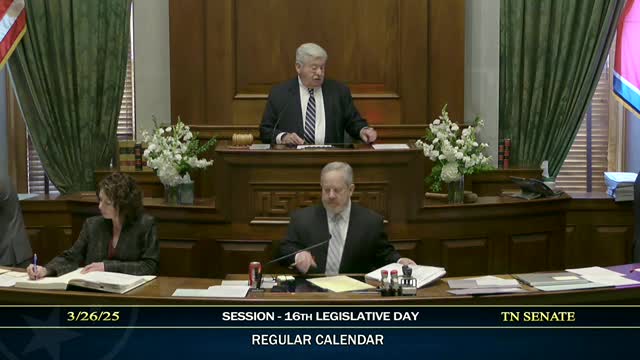Article not found
This article is no longer available. But don't worry—we've gathered other articles that discuss the same topic.
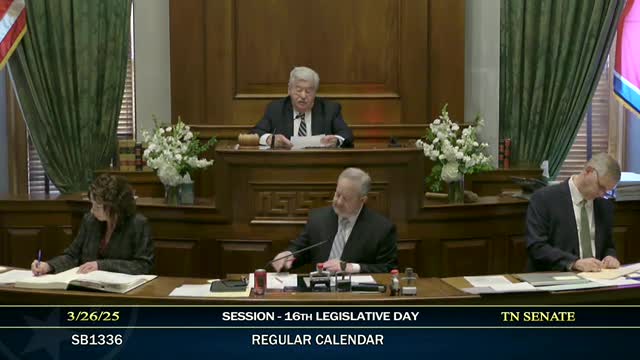
Senate concurs with House resolution urging Tennessee universities to adopt institutional neutrality and civility principles
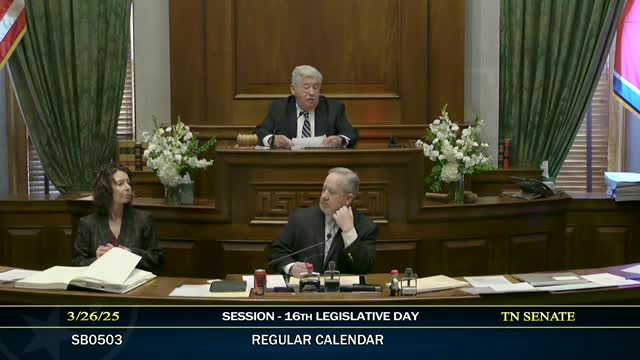
Senate designates June, July and August as months of "life, liberty and the pursuit of happiness"
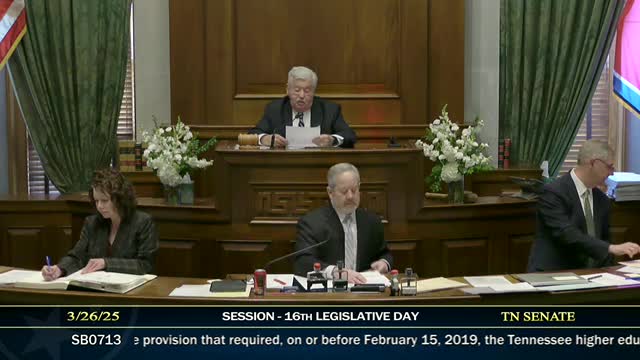
Senate requires military recruiters access to public senior high schools; excludes private voucher schools
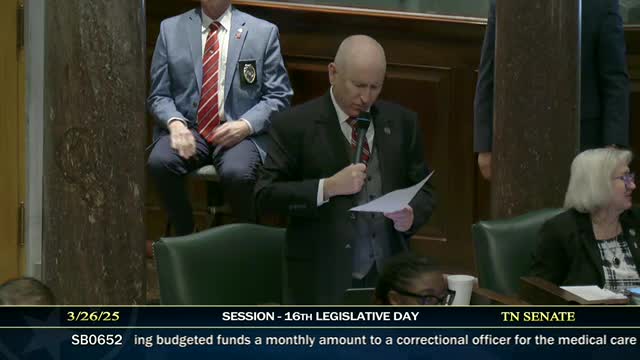
Senate approves bill easing retired corrections K9 transfers to staff with stipend
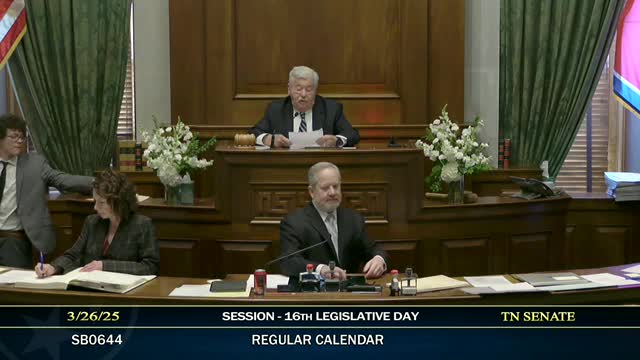
Senate approves bill expanding practical nursing curriculum access for LPN students in high school
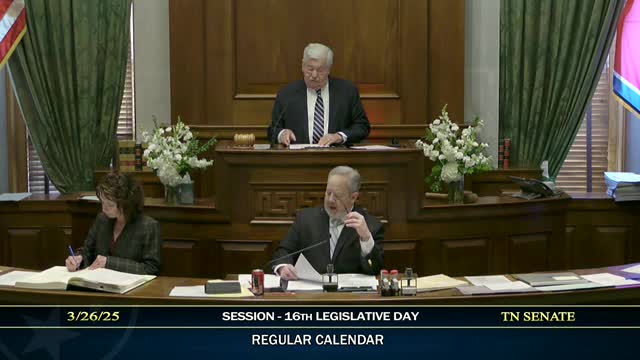
Senate narrows budget-control bill to Shelby County after debate on diversion of sheriff funds
